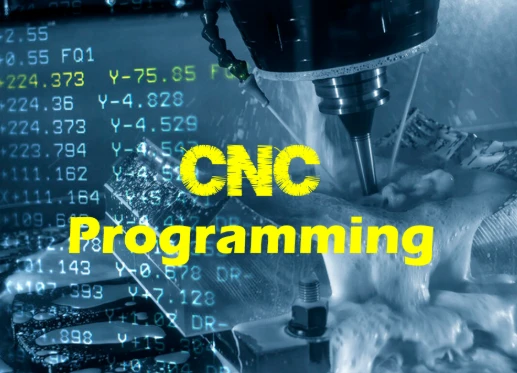Online courses for CNC machining offer flexible training for aspiring machinists. These programs open doors to successful careers in manufacturing.
Computer Numerical Control (CNC) machining is a vital skill in industries like automotive, aerospace, and electronics. Online courses for CNC machining, cnc programmer degree programs, cnc degree online options, machining schools, and machinist certification provide pathways to enter or advance in this field. These programs teach skills like programming, machine operation, and blueprint reading, preparing students for roles as CNC operators or programmers. This article explores the requirements, duration, costs, certifications, and career opportunities of CNC courses, offering practical guidance for those interested in this technical profession.
What Are CNC Courses?
CNC machining uses computer software to control tools like lathes and mills, creating precise parts. Online courses for CNC machining cover basics like G-code programming and machine setup. A cnc programmer degree, often an associate or bachelor’s, includes advanced topics like CAD/CAM software. A cnc degree online provides similar training but with virtual flexibility. Machining schools, both online and in-person, teach hands-on skills like milling and turning. Machinist certification, such as NIMS or Haas credentials, validates expertise in operating or programming CNC machines. These programs prepare students for roles requiring precision and technical knowledge.
Step 1: Understand CNC Program Requirements
Many online courses for CNC machining require a high school diploma or equivalent. Some programs, like a cnc programmer degree, may ask for math or technical drawing skills. A cnc degree online often includes prerequisites like basic computer knowledge for virtual learning. Machining schools may require background checks for in-person workshops or internships. Machinist certification programs, such as those from the National Institute for Metalworking Skills (NIMS), often need prior coursework or experience. Checking requirements early ensures you’re ready for the program you choose.
Step 2: Explore CNC Program Duration
CNC programs vary in length based on their focus. Online courses for CNC machining can last from a few weeks for introductory modules to six months for comprehensive training. A cnc programmer degree, like an associate degree, typically takes two years, while a bachelor’s may take four. A cnc degree online offers similar timelines but allows self-paced study. Machining schools often combine classroom and hands-on training, lasting one to two years for certificates or degrees. Machinist certification programs may require only a few months of study plus a test. Duration depends on your career goals and time commitment.
Step 3: Consider CNC Program Costs
Costs for CNC programs vary widely. Online courses for CNC machining may have lower fees due to their virtual format, covering materials like videos and workbooks. A cnc programmer degree involves tuition for college credits, which can differ by institution. A cnc degree online may reduce expenses by eliminating travel or housing costs. Machining schools with in-person components may include fees for lab access or tools. Machinist certification programs often charge for training materials and exams, such as those for NIMS or Haas certifications. Comparing program costs and financial aid options helps manage expenses effectively.
Step 4: Earn a Recognized CNC Certification
Certification boosts job prospects in CNC machining. Machinist certification, like NIMS or Haas credentials, verifies skills in machine operation or programming. Online courses for CNC machining often prepare students for these exams through practical exercises. A cnc programmer degree may include certification prep as part of the curriculum. A cnc degree online can align with industry standards, ensuring eligibility for certifications like FANUC or Mastercam. Machining schools frequently partner with certification bodies to offer testing. Earning a machinist certification demonstrates competence to employers in manufacturing industries.
Step 5: Job Search Platforms for CNC Programmers
Three reliable platforms for finding CNC programmer jobs are Indeed, LinkedIn, and Monster. Indeed lists CNC programmer roles across industries, allowing filters for location and experience level. LinkedIn connects job seekers with employers and offers networking opportunities with industry professionals. Monster provides job postings for CNC programmers and allows resume uploads to attract recruiters. These platforms help candidates find opportunities that match their skills and certifications, supporting career growth in machining.
Career Opportunities in CNC Machining
CNC training opens doors to roles like CNC operator, programmer, or technician. A cnc programmer degree prepares individuals for advanced positions, such as programming complex parts using CAD/CAM. A cnc degree online equips graduates for roles in industries like aerospace or medical device manufacturing. Machining schools provide hands-on experience, leading to jobs in machine shops or factories. Machinist certification enhances employability for roles requiring precision, such as lathe or mill operator. These careers offer stability and opportunities for growth with experience.
Tips for Success in CNC Programs
A few strategies can improve your CNC training experience. First, practice G-code programming regularly to build confidence. Second, explore online courses for CNC machining with virtual simulations to gain practical skills. Third, network with professionals through platforms like LinkedIn to learn industry trends. Fourth, verify that a cnc degree online or machining schools are accredited by bodies like NIMS. These steps help you succeed in training and prepare for a rewarding career.
Final Thoughts
CNC machining is a dynamic field with accessible training options. Online courses for CNC machining, cnc programmer degree programs, cnc degree online, machining schools, and machinist certification offer flexible paths to a technical career. By understanding requirements, duration, costs, and certifications, aspiring CNC professionals can choose the right program. Using job platforms like Indeed, LinkedIn, and Monster, graduates can find roles that match their skills. With careful planning, CNC training leads to fulfilling opportunities in manufacturing.






